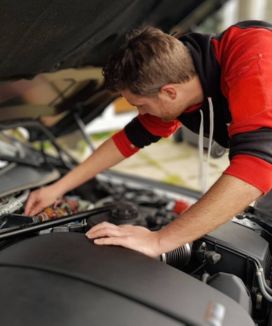Is a Garage Good For a Car? (And Can a Car Rust In a Garage?)
Table of Contents
We treat our cars as if they’re part of the family. We work hard to keep them running smoothly, and we make a concerted effort to protect their beauty and preserve their life. But what’s the best way to care for our vehicles in the long term?
Most people will agree that keeping a car sheltered from the elements when it’s parked up is a great way to prolong its life, but there can also be some downsides to keeping a car inside.
So is a garage good for a car?
It’s much better to keep a car in a garage so it’s protected from the elements. Garages prevent the car’s bodywork from being damaged by rain, snow, and even the sun’s UV rays. They also provide better protection against vandalism and theft.
So we know that garages can be good for cars, but are there any situations where keeping a car garaged can be detrimental, and can cars rust in garages?
Do Cars Last Longer In A Garage?
Cars do last longer in garages when the temperature and moisture levels inside the building are regulated correctly. The car’s bodywork will be preserved and its interior will last longer thanks to less exposure to strong sunlight.
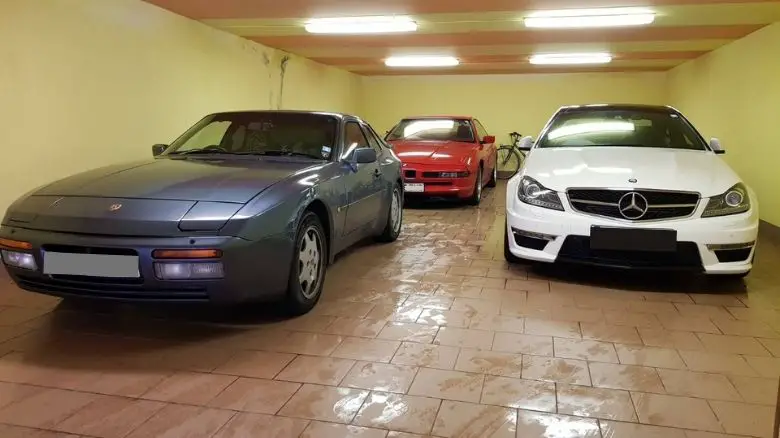
Less extreme temperature changes also mean the engine fluids will be effective for longer, and the lifespans of any exposed rubber and plastic parts on the exterior of the car will be extended too.
As with any possession of value, it’s usually better to keep it inside rather than outside for a multitude of reasons. Ultimately everything kept outside succumbs to the elements eventually.
The reason many car collectors and classic car enthusiasts keep their cars garaged is to preserve the life of the vehicle and protect their investments.
Classic car storage facilities also store their cars indoors with regulated temperature and moisture controls. It’s amazing how quickly old cars can deteriorate if not kept in the correct conditions.
Is It Better To Park A Car In A Garage During Winter?
Winter is the worst time to keep a car outdoors, so it’s preferable to keep it garaged whenever there’s cold and wet weather if possible. If stored correctly, a garage will help to reduce the damaging effects of rain, ice, snow and wind that are most prevalent during the winter months.
The number one killer of cars in countries with wet and cold winters is corrosion to the bodywork and components.
Keeping a car garaged offers a level of protection against the damaging moisture which sets the corrosion process to work, meaning the bodywork has a far better chance of staying fresher for longer.
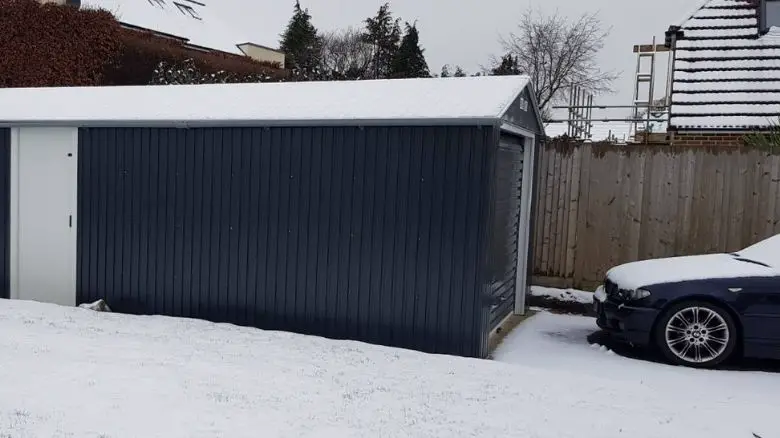
Is It Bad To Put A Wet Car In The Garage?
Putting a wet car in the garage can do more harm than good if it’s not dried out properly. A wet car will bring moisture into the garage which can’t escape once the door is closed, and can start to damage the car’s bodywork.
This can be a particular issue when the roads are icy and have been salted, as salt and grime will stick to your bodywork.
One way to deal with this issue is to dry out the car once you’ve returned home. Use an absorbent microfiber towel to quickly wipe down the car’s surfaces, paying particular attention to the wheel arches, rocker panels (sills), and anywhere else that your vehicle may collect dirt or moisture.
Another way to reduce the amount of moisture in your garage is to install a dehumidifier. Dehumidifiers draw in moisture from the atmosphere and maintain acceptable humidity levels in the building.
Do Cars Rust More In Garages?
It is possible for cars to rust more quickly in garages if appropriate precautions aren’t taken. If the air temperature inside the garage is warmer than the air outside, the corrosion process will be sped up and rust spots will start to form very quickly.
A car will only start rusting in a garage if it’s not cleaned down properly in cold weather before it’s parked, and if the humidity levels inside the garage are not controlled.
Road salt is extremely corrosive, so if any of it remains stuck to your car when it’s parked inside a garage (particularly a heated garage) and combined with moisture, the oxidation process will be accelerated.

Cars that are regularly taken in and out of garages during the winter are particularly prone to these issues, so regular cleaning and drying is essential to prolong the life of the bodywork and other metal components, such as the exhaust and suspension.
Is It Bad To Keep Your Car In A Hot Garage?
It’s unlikely that keeping a car in a hot garage will do any damage to the vehicle. A car is better off being inside a warm garage than left in direct sunlight.
Other than being an uncomfortable environment for you to work in, it would be surprising for an excessively hot garage to cause any harm to your vehicle.
Regular changes in temperature are bad for cars, but if the garage remains warm there won’t be an issue.
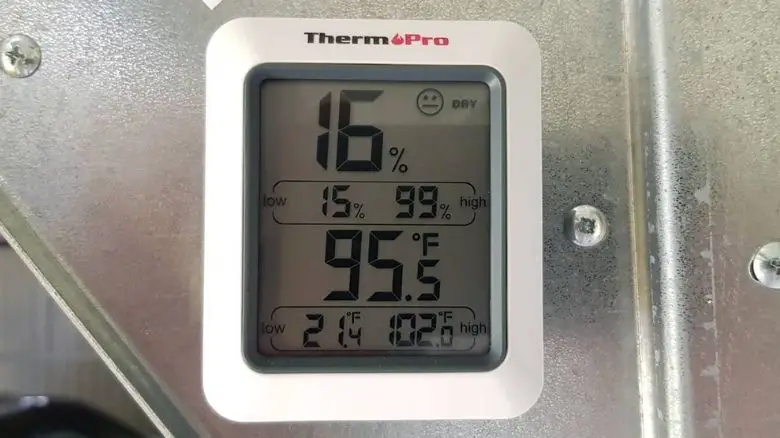
Depending on where you live, attention may need to be paid to overnight temperatures as some garages are susceptible to rapidly dropping temperatures once the sun goes down.
This is a recipe for disaster, and condensation is very likely to form on your car.
Heated garages are good for cars as they maintain the air temperature overnight, regardless of the temperature outside. This greatly reduces the chance of condensation forming and causing corrosion.
Insulation can also help to reduce the temperature of your garage in the summer by restricting the amount of warm air that can enter, whilst simultaneously keeping the temperature higher during the night.
Is It Safe To Park A Car In The Garage?
It is safe to park your car in the garage if there’s enough room to get in and out of the vehicle without scraping the doors on the wall, and without hitting anything you may be storing inside. It’s safest if there’s nothing sharp left on the floor that can damage tires, and nothing on shelves that can fall onto the car.
It’s safe enough if there’s room to maneuver the car. There is the potential to damage the car if the garage is too small and there’s lots of stuff being stored inside.
Before parking your car in the garage you can take measurements to ensure it will fit. Measure the full width and length of both the car and the garage, and remember to take into consideration the additional width needed to open the car doors.
Garages often double-up as workshops, meaning there’s the potential for sharp objects to be left on the floor. Do a thorough clean of your garage floor if you’re going to be using it to store your car.
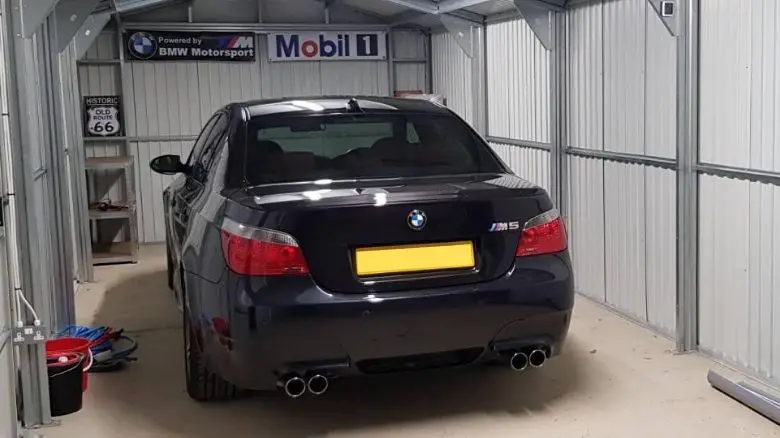
Any items kept on shelves or in the roof space above a garage have the potential to fall and damage the car’s bodywork. Assess your storage before moving the car inside, and move anything that might pose a risk.
It’s not uncommon for people to accidentally drive their cars into the end of the garage whilst trying to park when visibility is low.
You can consider adding an aid to help you if you’re concerned, such as a mark on the wall or a tennis ball hanging from the ceiling at the point which you need to stop.
If you take precautions and clear enough space, it’s not dangerous at all to park a car in a garage.
Should I Park My Car In The Garage?
You should park your car in the garage to protect it from the weather, keep it safe from vandalism and theft, and to prolong its life. It’s far better to keep your car in a garage than outside, and is a great way to safeguard your investment.
Whilst there can be some downsides to parking in a garage, they’re greatly outnumbered by the benefits.
The downsides we’ve discussed can be overcome by insulating your garage, by cleaning any dirt and salt off the car before parking, and by taking care to not leave a wet car in a garage without drying it first.
Here at The Car Investor we keep the majority of our cars garaged when not in use, which is especially important as many of them are older cars.
Parking your car in the garage is the best thing you can do to keep it looking great, running well, and to retain its value long into the future.
ABOUT THE AUTHOR
Adam Chinn writes about the intersecting worlds of classic cars, driving pleasure, and smart investment strategies. Starting his journey at 26, he’s proven that one doesn’t need to be wealthy to begin investing in classic cars.
Adam’s insights have been recognized on platforms such as MoneyInc, Swagger Magazine, and Top Speed.



